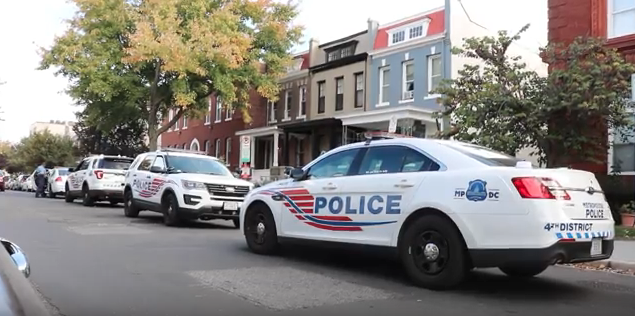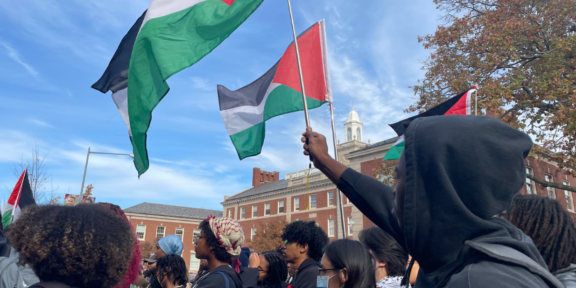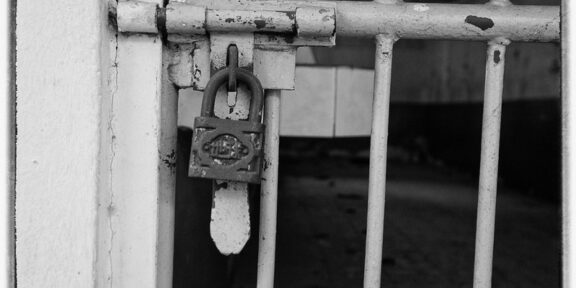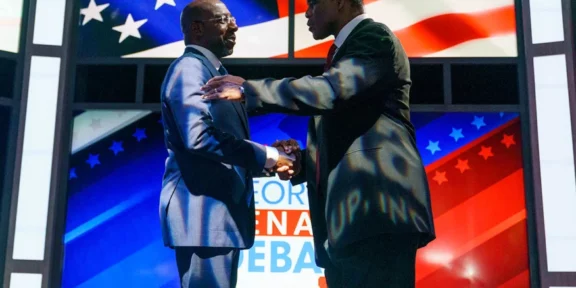Two months after the first round of flawed elections and immense pressure from the international community, the Haitian government announced Mirlande Manigat and Michel Martelly as the final presidential candidates vying to become the island-nation’s next president.
After weeks of political uncertainty and ultimatums from the United States, which included a personal visit from U.S. Secretary of State Hillary Clinton on Jan. 30, the election officials announced Thursday that Martelly will advance to the second round.
Second round votes will be held on March 20.
In the midst of Haiti’s elections, former dictator Jean-Claude “Baby Doc” Duvalier made an unexpected return to Haiti on Jan. 16. Shortly after his return, many speculated that Jean-Bertrand Aristide would soon follow suit.
On Monday, the Haitian government said it had issued a passport to the former president enabling him to return to Haiti, according to AFP.
The outcome of the Nov. 28 election sparked civil unrest throughout the country and led the Provisional Electoral Council (CEP) to invite international electoral officials to assist in reviewing the vote tabulations.
A woman named Nelia, who lives in Haiti and didn’t want to reveal her identity because of security concerns, was one of many who witnessed the irregularities when she went to vote on Election Day.
“There were boxes already filled,” she said in Haitian Creole. “Many people who went to vote could not find their names on the list. When people noticed all these irregularities, that’s when everyone said the elections weren’t good.”
Immense Pressure
According to CEP’s report of the preliminary results, former first lady and Sen. Mirlande Manigat won 31.37 percent of the population’s votes; Jude Célestin, the founder and executive of the government’s road-building outfit, National Center of Equipment, 22.48 percent; and former carnival musician Michel “Sweet Mickey” Martelly, 21.84 percent.
However, the Organization of American States (OAS) issued an Expert Verification Mission’s Final Report on Jan. 13 that showed the revised totals would advance Martelly into the second round, excluding government-backed Célestin representing the UNITY (INITE) party.
Votes were recounted under the scrutiny of experts from the Joint OAS-CARICOM Electoral Observation Mission (JEOM).
As a result, the OAS report stated that “international and national observers witnessed … disorganization, irregularities as well as instances of ballot stuffing, intimidation of voters and vandalism of polling stations.”
Since the release of the report, the Haitian government and the CEP have been under immense pressure by the United States and other Western countries to move forward with the elections without Célestin. Election experts found that the votes were tampered with in Célestin’s favor.
“Neither result is democratic,” said Reginal Cesar, referring to both the preliminary results and the OAS revised totals. “They should null the whole thing,” added Cesar, a Montgomery County resident who moved from Haiti to the United States in 2005.
Revoked Visas
In a bold attempt to expedite the electoral process, the United States revoked 12 entry visas of Haitian government officials.
Philip J, Crowley, the State Department’s assistant secretary for public affairs, confirmed the visas had been revoked at a daily press briefing on Jan. 21. However, Crowley did not specify if the revocation was linked to elections.
“We want to see the government of Haiti embrace the OAS verification mission report. We want to see security and stability sustained in Haiti. We want to see the election results reflect the will of the Haitian people,” Crowley said. “And to the extent that there are individuals who are connected with episodes of violence or corruption. We will not hesitate to take appropriate action.”
The U.S. Senate issued a resolution on Jan. 26 that “urges the international community to call on the leaders of Haiti to immediately reach a democratic resolution to the current electoral crisis to enable the newly elected leaders of the government of Haiti to take office by Feb. 7, or shortly thereafter.”
A New Beginning
Many Haitians were hoping that the elections would be a new beginning for the country. However, it’s politics as usual, and Haitians at home and abroad are ready for their government to mature and promote fair and democratic elections.
“There were many who thought the elections would go well,” said Nelia, a Port-au-Prince resident. “At least a president that would consider the condition of the people. There are people still under tents, people who are miserable.”
Some suggested that the government should redo the elections, but doing so is unconstitutional. Others argued that the elections should be cancelled altogether.
Figaro Joseph, a Ward 2 resident, said in an email that he does not believe there should be calls for vote cancellations and encourages Haitians to solve their disputes through negotiation and legal process.
“The hope was that if they could do that then they could begin to strengthen and put new structures and processes in place to resolve future conflicts” said Joseph, a Haitian-American and Howard University alumnus.
.Although Haiti won its independence 200 years ago, it has rarely governed itself without foreign intervention.
U.S. Rep. Maxine Waters, D-Calif., issued a statement Thursday, expressing her concerns about the elections in Haiti.
“It appears that the international community – led by the United States, Canada and France – has used its tremendous power and influence to determine the outcome of the first round of the elections and the candidates for the runoff,” Waters said. “Once again, the people of Haiti have been denied the opportunity to express their will through free, fair, credible, and transparent elections – which are important factors for effective governance – and once again, it appears that the international community is determining the political fate of Haiti.”
Differing Views
Cesar, the Montgomery County resident from Haiti, believes whether or not Célestin remained on the ballot, there were going to be problems.
“Everybody should be able to participate honestly to fight for what they want,” Cesar said.
Noting that an election do-over is unconstitutional, Nelia said, “Even if they redo the elections with the same group of people, there are still going to be irregularities, because the government will give the person it wants to the people.”
“If the government chooses someone and the people don’t agree there is always going to be trouble and problems in the country.”
Joseph agrees that canceling the elections is unconstitutional and says that Haitians should start respecting its law.
“The Haitian government should resist all threats,” Joseph said. “It’s their country, their problem and the solution should be theirs.”
Although Joseph and Cesar have different views as to what should be done with the elections at this point, they both support Martelly for president and believe that he should be elected president if Haiti accepts the OAS recommendations.
“Even though he does not have political experience, I believe that the youth in Haiti would trust him,” Joseph admits. “If he were to win and put together a serious cabinet, he could be a strong leader for the programs that his administration designed and wanted to implement.”
Cesar acknowledges the population’s age gap and says Martelly would be the best leader.
“[Martelly] is someone who when he talks, [the people] will listen,” Cesar said. “He doesn’t have the experience, but I will take a chance with him.”
Although Nelia declined to share which candidate she supports as the next president, her younger sister replied, “Whomever they give me, the government is the one choosing for us.”







